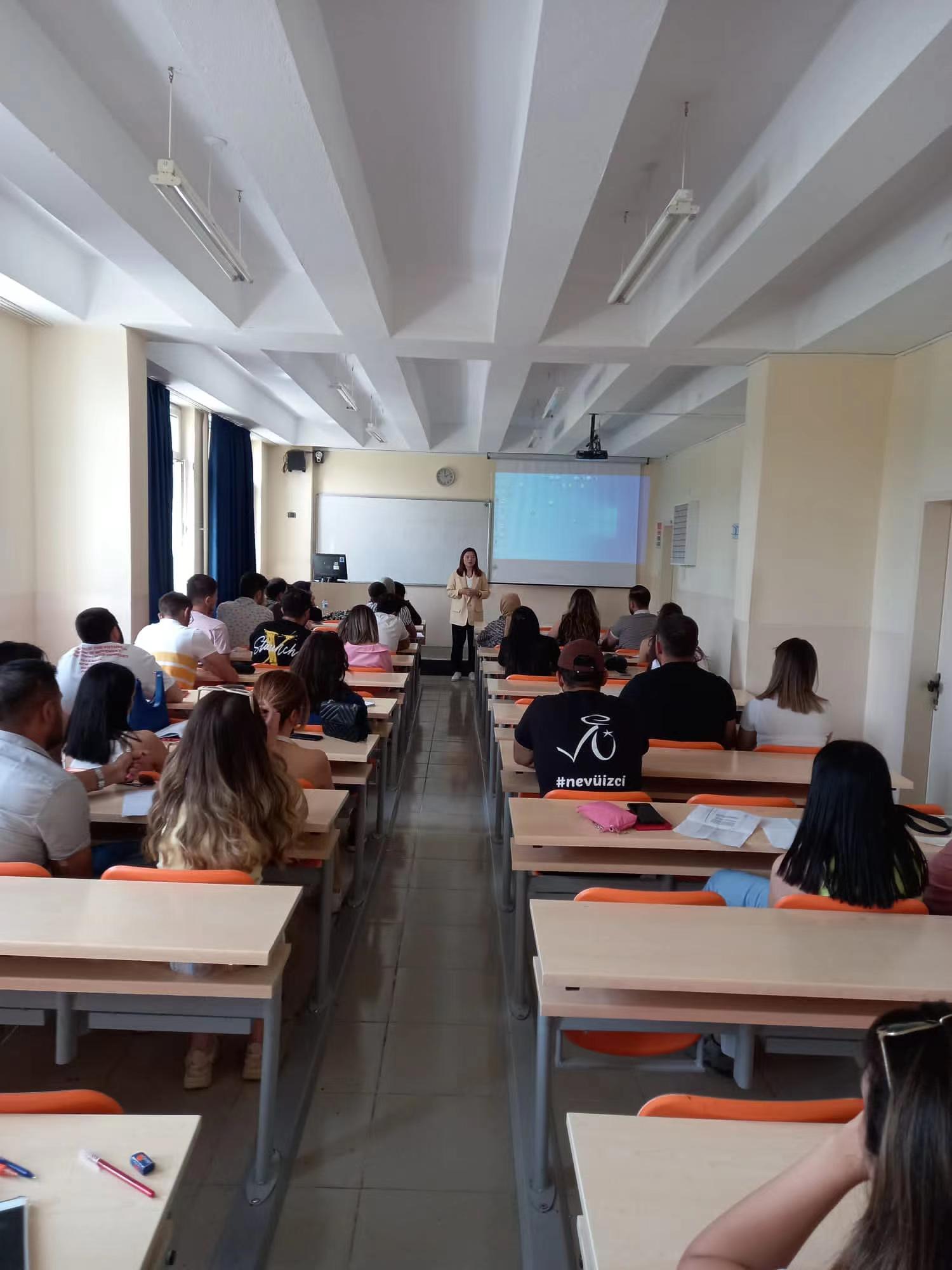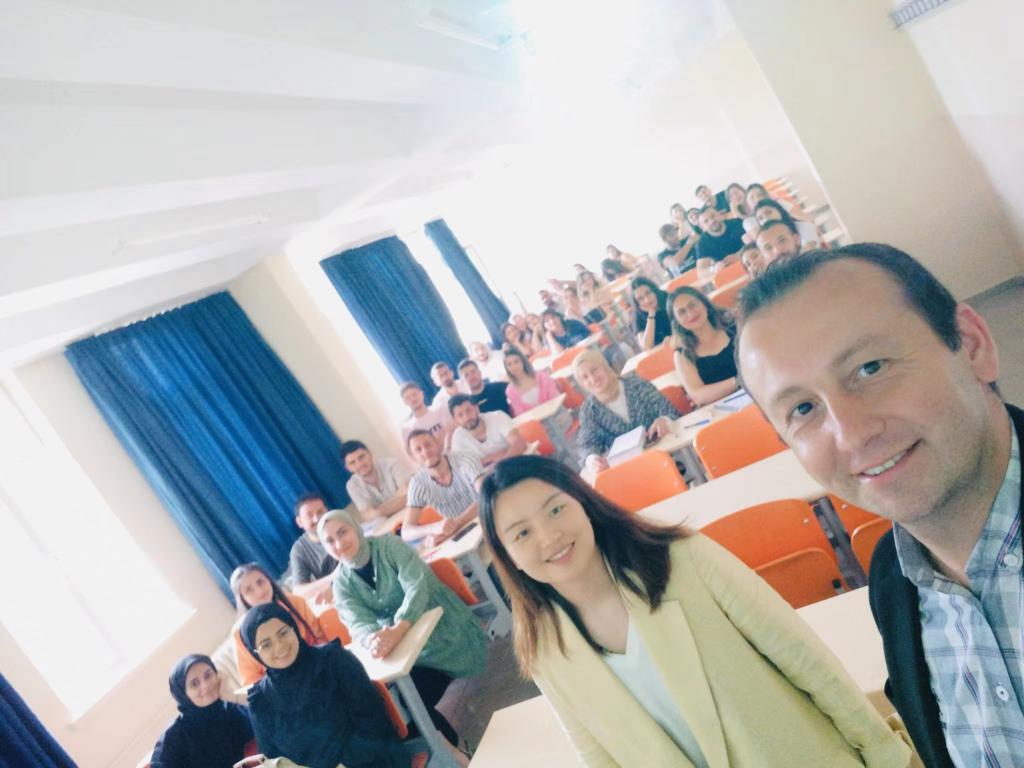土耳其研究中心博士生梁莹莹受邀
在土耳其哈哲·贝克塔什·维利大学做报告
6月2日,我土耳其研究中心博士生梁莹莹,受土耳其内夫谢希尔哈哲·贝克塔什·维利大学(Nevşehir Hacı Bektaş Veli)穆拉特(Murat Demirel)教授的邀请,在国际关系系做题为“冷战后中国外交政策的演变”的报告。

报告通过中国为何如此重视经济发展、国际上对中国威胁论的争议、未来中土关系的发展方向等三个问题,主要讲述了随着国际形势的风云变幻,中国的“韬光养晦”政策逐渐转变为面对百年未有之大变局背景下的主动作为。面对相关国家对“韬光养晦”政策的误读和对“一带一路”倡议的动机质疑,加之中国国际话语传播力和影响力的不足,一定程度上,中国依旧面临着以西方意识形态主导下的国际话语困境。近些年来,中国为发展软实力做出了诸多努力,并逐渐意识到政治互信才是经济合作的基础和前提。未来随着中国和土耳其双边政治层面的增信释疑,中国的“一带一路”倡议将与土耳其的“中间走廊”计划进一步对接,发展数字经济作为未来国际经济领域合作的重要方向,也将有效助力中土双边关系的发展。
最后,针对学生们对当下美国对华政策、中俄关系及台湾问题等疑问,梁博士分别进行了细致解答。
Yingying Liang was invited toNevşehir HacıBektaşVeli University talking about China’s Foreign policy
On the 2nd of June, Our research assistant Yingying Liang from Institute for Turkish Studies visited Nevşehir Hacı Bektaş Veli University, as she was invited by Dr. Murat Demirel to give a lecture aboutChina’s Foreign Policy after the Cold War at the International Department.

Surrounding why China insistently highlighted on economy’s development, how foreign countries and experts misunderstood China’s Threat, and the development of the future relationship between China and Turkey, Yingying mainly talked about the Chinese foreign policy’s evolution from‘Keep A Low Profile’policy to positively taking the initiative to act on critical issues with the profound changes unseen in a century. When it referred to the controversial discussions about‘Keep A Low Profile’and the BRI, Yingying thought that there was still a gap for China to smoothly explain itself. However, China gradually realized that better economic cooperation was based on mutual political trust in a sense. In the coming days, China’s BRI will increasingly match Türkiye’s Middle Corridor plan up with the further political trust between the two sides, especially for the cooperation on the digital economy in the future.
The lecture ended with Dr. Liang’s responses to some questions related to current affairs raised by the students.
